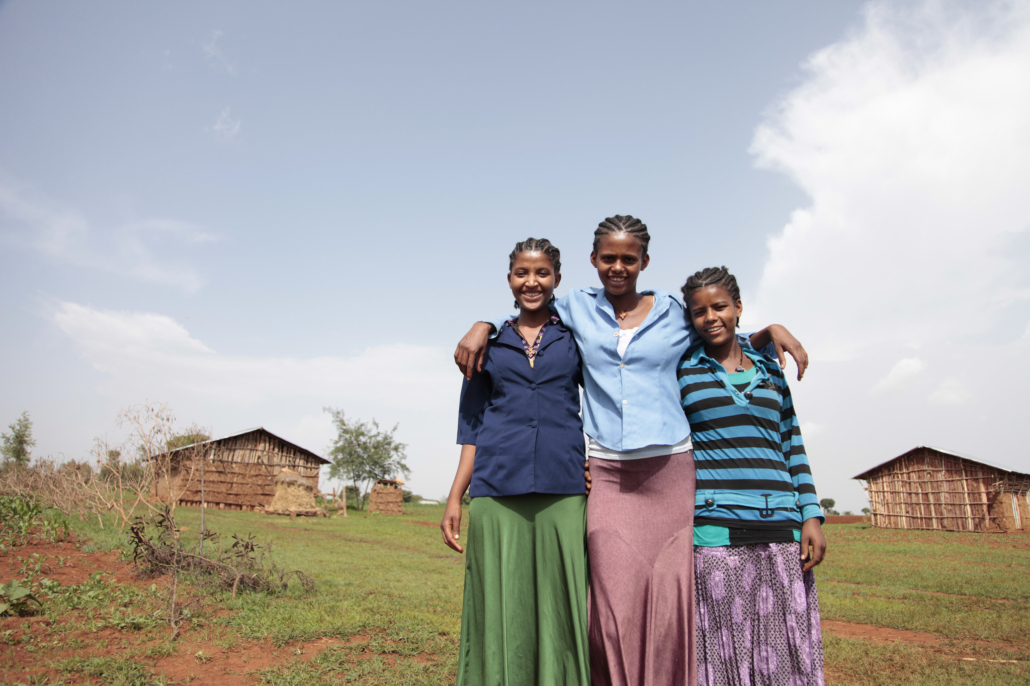Protecting Futures: Addressing Child Marriage in Rwanda
 Child marriage in Rwanda is being tackled through education and advocacy, helping communities to unite and confront the harmful practice, creating a safer future for young women and girls.
Child marriage in Rwanda is being tackled through education and advocacy, helping communities to unite and confront the harmful practice, creating a safer future for young women and girls.
Today, approximately 38,800 girls in Rwanda are married before the age of 15 and 424,900 married before 18. This practice has direct links to poverty as struggling families see early marriage as a means for financial relief. However, Rwanda is implementing strategies to tackle child marriage by addressing the root causes.
Legal Protections
The Rwandan government has raised the legal marriage age to 21. This law aims to protect girls from early marriage, allowing them to complete their education.
Mandatory documentation checks help to enforce the law, closing loopholes that previously allowed child marriage in Rwanda to fly under the radar. Additionally, there are awareness campaigns about the consequences for breaking the law which community leaders support. These consequences can act as deterrents, helping people to understand the seriousness of the law.
Education Programs
Access to education is central to preventing child marriage in Rwanda. The “Girl’s Education Policy,” launched in 2008, has increased girls’ enrolment in primary and secondary schools by 15%. This policy promotes gender equality through mentorship programs and savings groups for girls.
UNICEF has also supported girls’ education in Rwanda through initiatives like the GIRL program (Girls In Rwanda Learn), which provides learning support for girls at risk of dropping out of school. The scheme helps to address challenges such as academic struggles and limited resources, aiming to empower girls to stay in school and advance their education in spite of familial and economic pressures that may lead to early marriage.
Community Involvement
Community-based efforts are deconstructing cultural norms that accept child marriage as commonplace. For example, the 12+ Adolescent Girls Empowerment Program hosted workshops and seminars to empower girls, build new skills and educate on the risks of early marriage. With almost 100,000 girls reached, the initiative strengthened young girl’s self-confidence and reduced the risk that they and their families might see child marriage as the only option for economic security.
Economic Empowerment
Economic pressure is one of the main reasons behind child marriage in Rwanda. However, the country has introduced initiatives to tackle this. For example, vocational training programs equip girls with practical skills in jobs such as tailoring, hairdressing and farming. These skills give young women and girls a route to financial independence, helping them to provide for their families without relying on early marriage. These programs are also open to young girls who have already been a victim of child marriage or who are young mothers.
Support for Victims
Rwanda has support systems in place for victims of child marriage. Similar to the vocational training programs, community-based girls’ clubs provide safe spaces where survivors can share experiences, receive emotional support and gain critical skills to help them reclaim their lives.
Reintegration programs that local organizations provide such as the “Imbuto Foundation” offer counseling to help girls, who have been married early or teenage mothers, navigate any difficulties as they rebuild their lives. Once again, vocational training through these programs also gives survivors the tools for financial independence, allowing them to break free from cycles of dependency.
Progress and Challenges
So far, efforts to reduce child marriage have seen the percentage of women, aged 20-24, married before 18 lowered to 6%. This number reflects the effectiveness of the legal reforms, education initiatives and community advocacy.
Despite this progress, one in 20 young women still marry as children. The practice largely persists in rural areas where poverty, limited resources and ingrained cultural practices hinder further improvements. However, the progress so far proves that Rwanda can overcome these barriers. With continued investment, awareness and collaboration a freer future can be ensured for all young girls in Rwanda.
– Amber Lennox
Amber is based in Suffolk, UK and focuses on Good News and Politics for The Borgen Project.
Photo: Flickr
